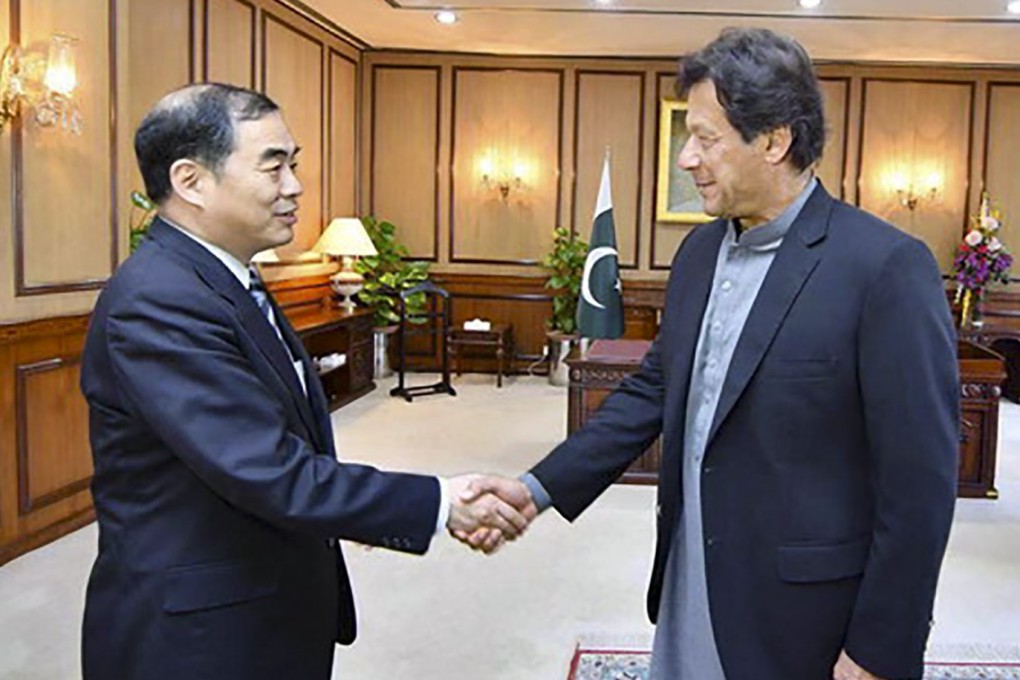China walks fine line as India calls on UN to impose anti-terrorist sanctions on Pakistani militant group leader Masood Azhar after Kashmir killings
- Beijing distances itself from Security Council consensus on pursuit of Jaish-e-Mohammed chief after group claims attack that killed 40 Indian troops in Kashmir

A senior Chinese diplomat said China and Pakistan will defend their core interests as India called on Beijing and the other four permanent members of the UN Security Council to place a Pakistani militant leader on a counterterrorist sanctions list.
Deputy foreign minister Kong Xuanyou stated China’s position at meetings with Pakistani Prime Minister Imran Khan, army chief General Qamar Javed Bajwa and Foreign Minister Shah Mehmood Qureshi in Islamabad on Tuesday and Wednesday. Their agendas included discussions on the recent crisis afflicting the disputed Kashmir region that borders China.
India has pressed China to support its move to designate Masood Azhar, leader of the Jaish-e-Mohammed group which claimed responsibility for the deaths of 40 Indian soldiers in Kashmir last month, as a terrorist under international law.
India has pursued Azhar for decades, but China did not support the move and cited reasons such as lack of evidence against the 50-year-old for its refusal.
Last week, France, Russia, Britain, and the United States – four of five permanent members of the UN Security Council – backed India’s call to impose an arms embargo, global travel ban and asset freeze on Azhar. A 15-member UN sanctions committee has until March 13 to raise objections to India’s proposal.